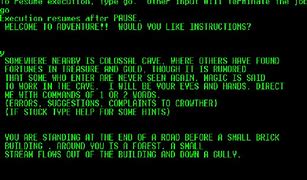The Tragic Downfall of Titanfall 2: How a Masterpiece Was Left to Decay
Few games in recent history have experienced such a tragic fate as Titanfall 2. Released in 2016 by Respawn Entertainment, the game was widely praised for its innovative movement mechanics, stellar campaign, and deep multiplayer experience. Yet, despite its critical acclaim and a loyal fanbase, Titanfall 2 never achieved the commercial success it deserved. Over the years, its player base dwindled due to a combination of corporate missteps, hacking issues, and lack of long-term support from its publisher, Electronic Arts (EA).
A Masterpiece Doomed from the Start
From the outset, Titanfall 2 faced an uphill battle. The biggest mistake? Its release date. EA, in an almost suicidal move, decided to launch the game on October 28, 2016—sandwiched between two juggernauts: Battlefield 1 (another EA title) and Call of Duty: Infinite Warfare. Both franchises were well-established and had massive marketing budgets, effectively drowning out Titanfall 2. As a result, the game sold a mere 4 million copies in its first year—a respectable number, but far below EA’s expectations and significantly lower than Battlefield 1, which sold over 15 million units.
Reviews were overwhelmingly positive, with critics praising the fluid movement system, exhilarating mech combat, and one of the best first-person shooter campaigns in years. Titanfall 2 boasted a 9/10 on IGN, a 10/10 on GameSpot, and a Metacritic score of 89. However, good reviews alone weren’t enough to save it from financial underperformance.
Neglect and the Rise of Hackers
Despite having a dedicated fanbase, Titanfall 2 gradually fell into obscurity. While EA focused on other projects—particularly Apex Legends, which was built from Titanfall’s framework—support for Titanfall 2 dwindled. The lack of regular updates or meaningful content drops made it difficult for the game to maintain momentum.
Things took a turn for the worse when hackers began targeting Titanfall 2’s servers. By 2021, the game’s multiplayer experience had become nearly unplayable due to DDoS attacks and exploits that allowed cheaters to ruin matches. Players pleaded for Respawn and EA to step in, but responses were slow and ineffective. The hacking crisis reached a boiling point when security concerns led Respawn to briefly remove Titanfall 2 from sale on some platforms.
The Success of Apex Legends and the Forgotten Franchise
When Apex Legends launched in 2019, it quickly became one of EA’s biggest live-service games. Within its first year, Apex amassed 70 million players, and by 2024, it had generated over $2 billion in revenue. Unfortunately, this success came at a cost—Respawn’s focus shifted entirely to Apex, and Titanfall 2 was left to rot.
For years, fans hoped for Titanfall 3, but Respawn made it clear that no sequel was in development. EA saw little financial incentive to invest in a new Titanfall entry when Apex Legends was already raking in money.
A Glimmer of Hope?
Despite everything, Titanfall 2 still has a passionate player base. In early 2024, a resurgence in interest brought thousands of players back after Respawn seemingly fixed some of the game’s biggest issues. On Steam, the game went from an average of 1,500 concurrent players to over 15,000 after a surprise patch. However, without long-term support, the game will likely fade into obscurity once again.
Final Thoughts
The downfall of Titanfall 2 is a cautionary tale of corporate mismanagement and unfortunate timing. It’s a game that had all the ingredients for long-term success but was ultimately a victim of EA’s poor release strategy, lack of post-launch support, and shifting priorities. It remains one of the greatest FPS games ever made, but unless Respawn decides to return to the franchise, Titanfall may forever remain a relic of what could have been.












